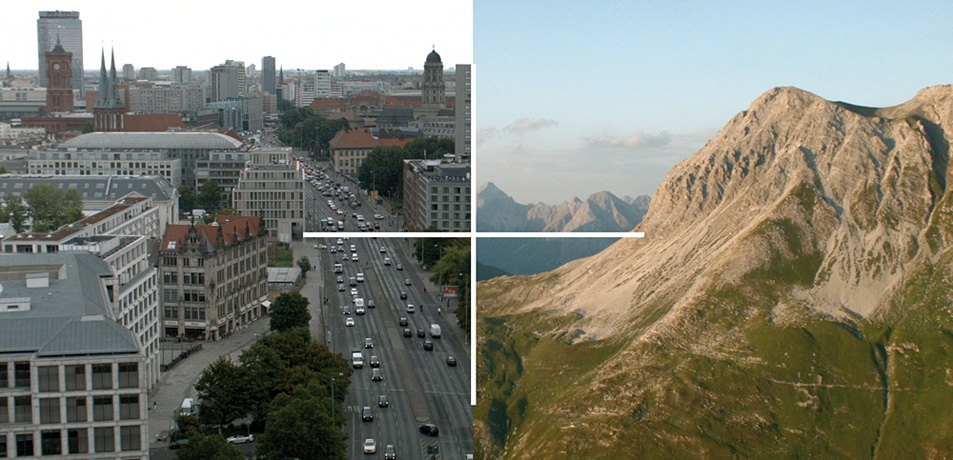legislating architecture: architecting after politics
a project by brandlhuber+ and christopher roth
exhibition„In order to determine the major players with whom architects should engage, we have to ask the question: Who owns the ground and why? If we understand the verb ,architecting‘ as an action outside the explicit construction of buildings, and more as a reference towards agency in shaping future cities and politics, this film continues with the question: Who architects the city? Who are the new public and private agents and how can we, as architects, engage with them to either facilitate or resist their goals? Finally, which roles can we define for our profession?“ (brandlhuber+)
When the markets failed in 2008, the private sector launched into post-crisis mode, turning to capitalism as a tool for reparation. Land and property were sold out on a global scale to private agents. The responsibility of the state and private companies became deeply enmeshed in the form of public-private partnerships—bizarre agglomerations of ungraspable power. Our global network became further complicated and intertwined, making it impossible to address any single entity as a sole agent.
In the absence of clear architectural agency, the discourse saw a major influx of actors from different disciplines. Access to real estate, social media, and public data, became the only necessary preconditions for architectural projects. Suddenly, Google, a company founded as an online search engine, was designing master plans for new urban utopias – and, with their amount of financial capital, was able to realize their vision.
Although real estate was sold largely to private corporations, access to technology and the dissolution of discursive specialties allowed other, less corporate, actors to take part in the discussion. Individual investors, teachers, and forest loggers, to name a few, were now able to take on architecture’s social project of shaping the city. The agency of architecture has therefore shifted to the hands of these new agents, with whom architects must engage.
The third film, Architecting after Politics, thereby asks the question, who architects the city, in order to understand the array of actors and their intentions for the city. Are private investors taking on urban projects as a means of economic growth or as a means of contributing to public space? Is it possible that Google’s waterfront in Toronto or Link NYC’s Wi-Fi ports are today’s public infrastructure, although privately owned? Can this be a good thing? The variety of case studies propose a diversity of answers to these questions in the form of concrete projects, meant to expand outside the conventional boundaries of architectural practice.
>> Further information (only available in German)

